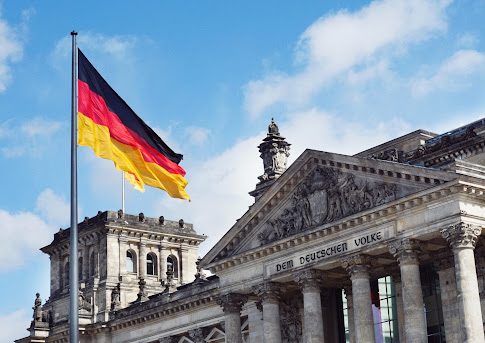Your recent analysis of the German economy concluded with the diagnosis that Germany might once again become the sick man of Europe. [ " How the wheels came off '', August 19th.]
I argue that this is not the case :
In the late 1990s, when '' The Economist '' first described Germany this way [ '' The sick man of the euro'' , June 5th 1999], the country was suffering from unemployment, especially long-term unemployment, low productivity and hence anaemic growth.
The labour market was dysfunctional and inefficient. In other words, the problems were endogenous.
The situation today is completely different. With Russia's war of aggression against Ukraine, Germany has faced a turning point and an exogenous terms-of-trade shock.
The shock has hit Germany harder than any other major country in western Europe because of its greater exposure. Its gas imports from Russia fell from over 50% of total gas imports to zero.
Energy prices have been rising dramatically for some time. Measured against this historically difficult situation, the German economy has coped well with the shock, thanks to widespread energy savings by businesses and households and thanks to decisive action by the federal government, for example building liquefied natural-gas terminals in record time. [`'Deutschlandgeschwindigkeit'']
Moreover, as one of the world's leading export nations, Germany's economic performance is negatively affected by slow growth in some of its key trading partners. Even more importantly, the coming years will be crucial in the fight against climate change.
Germany is mobilising hundreds of billions of euros of private and public investment to transform its economy into a carbon-neutral one.
WE ARE cutting red tape, speeding up permit procedures and creating a new, modern immigration system. We are strengthening our grids, building a hydrogen infrastructure and new hydrogen-ready power plants.
OVERALL, the German government does not at all ignore '' alarm bells '', especially regarding its industrial sector. It admits the enormous scale of the task and is fully committed to changing the ways we are doing things to be successful.
It is quite normal that such an enormous transition comes with some turbulence. I am convinced that growth will soon return and that we will profit enormously from our action in the longer run. Don't count out Germany just yet.
The World Students Society thanks author Steffen Meyer, Director-general Federal Chancellery, Berlin.

.png)


0 comments:
Post a Comment
Grace A Comment!